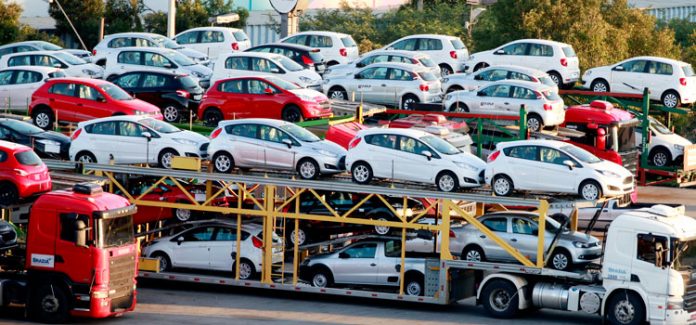With the new investment plan by existing automakers and new entrants in the industry, Original Equipment Manufacturers (OMEs) eye production of 500,000 cars per year by 2022. Indus Motor Company Limited (IMC), a country’s leading automaker, has a plan to invest around Rs 4 billion to expand its annual production capacity by 200,000 units in a bid to capitalise on the growing consumer demand. Currently, IMC holds an annual production capacity of 54,800 units, which are sold under the brand name of Toyota. The planned capacity enhancement would bring the production to 75,000 vehicles a year.
During a recently held auto workshop, Chief executive Officer of Indus Motor Ali Asghar Jamali and former chairman Pakistan Association of Automotive Parts and Accessories Manufacturers (PAAPAM) Amir Allahwala claimed that as per the investment plan and arrival of new players in the auto industry, Pakistan would hopefully be producing 500,000 cars per year by 2022.
The OMEs, they said are continuously investing in capacity enhancement amid unprecedented growth, now it’s up to the government to attract more automakers by showing its resolve in making Pakistan’s auto industry the backbone of the economy by pursuing continuity in policies. The industry suffered heavily when government deviated from policy in 2008 when it allowed an undue relaxation in the import of used cars, resulting in the closure of at least four OEM plants and their vendors while losing many job opportunities.
According to them, the industry is coping well with the Auto Industry Development Plan (AIDP) including provision for import of three years old used cars. In fact, the import of 1300 cc used cars is waning rapidly and after the introduction of high-end Fortuner, the demand for luxury cars would also taper. As soon as a new version of small segment car is introduced the consumers would lose interest in import of small segment used cars as well.
“New investments are on the horizon in automobiles. Most of the vendors are not only increasing capacities but are also upgrading technologies. Some new entrants have also announced investment plans. The addition of a European and two Korean brands would add variety in the car section and create healthy competition. Soon, six of the top ten global car brands would be operating in Pakistan. In addition, a Chinese brand ranked 20th largest car producer globally is already active in the country,” they said.
According to them, the sector has seen capacity enhancement by existing OEMs while they have increased shifts and work on gazetted holidays to meet the unprecedented demand, this demand is testimony that OEMs in Pakistan are producing global brands with international quality standards while most of our products are cheaper as compared to same variants in global markets.
Pakistan is a hidden treasure where 50 per cent of its 200 million populations is below the age of 30. Two countries with about the same population are Indonesia and Brazil, where the yearly car production is 1.3 million and 3.2 million respectively. The annual car demand in Pakistan they added is 283000 only (including domestic and imported cars)
Indonesia, in 2000, was producing around the same number of cars as Pakistan is producing currently. That country has the same chequered political history. In next 15 years, car production in Indonesia crossed one million units. Pakistan is also attaining similar stability and better law and order coupled with better governance. AIDP envisages that car production in Pakistan would reach 500000 units by 2025. However, the way things are moving, the half million vehicle production target would be achieved by 2020.
The young population helped shoot the motorcycle production from 100000 units in 2000 to 2.1 million units now. This aspiring young generation is now fully prepared to graduate to the use of small cars. This will increase the demand for small cars substantially. At the same time, the employees that are moving up in the corporate cadre are looking for medium sized cars. This is the reason that the demand for medium segment cars is also increasing. The waiting time for Suzuki Wagon R and little higher versions like Toyota Corolla and Honda City is on the rise.
Talking about the menace of car premium of own money, the CEO Indus Motor Jamali said it was a matter of grave concern for the car manufacturers as it brings them a bad name. “IMC takes utmost care to tackle this issue by keeping a close eye on its dealers. The company believes that this menace of the premium could be curbed only by the consumer, however, this issue could also be resolved administratively by slapping a heavy tax on the transfer of car within 6 months of purchase,” Jamali said, adding this would discourage unethical investment in this sector.




